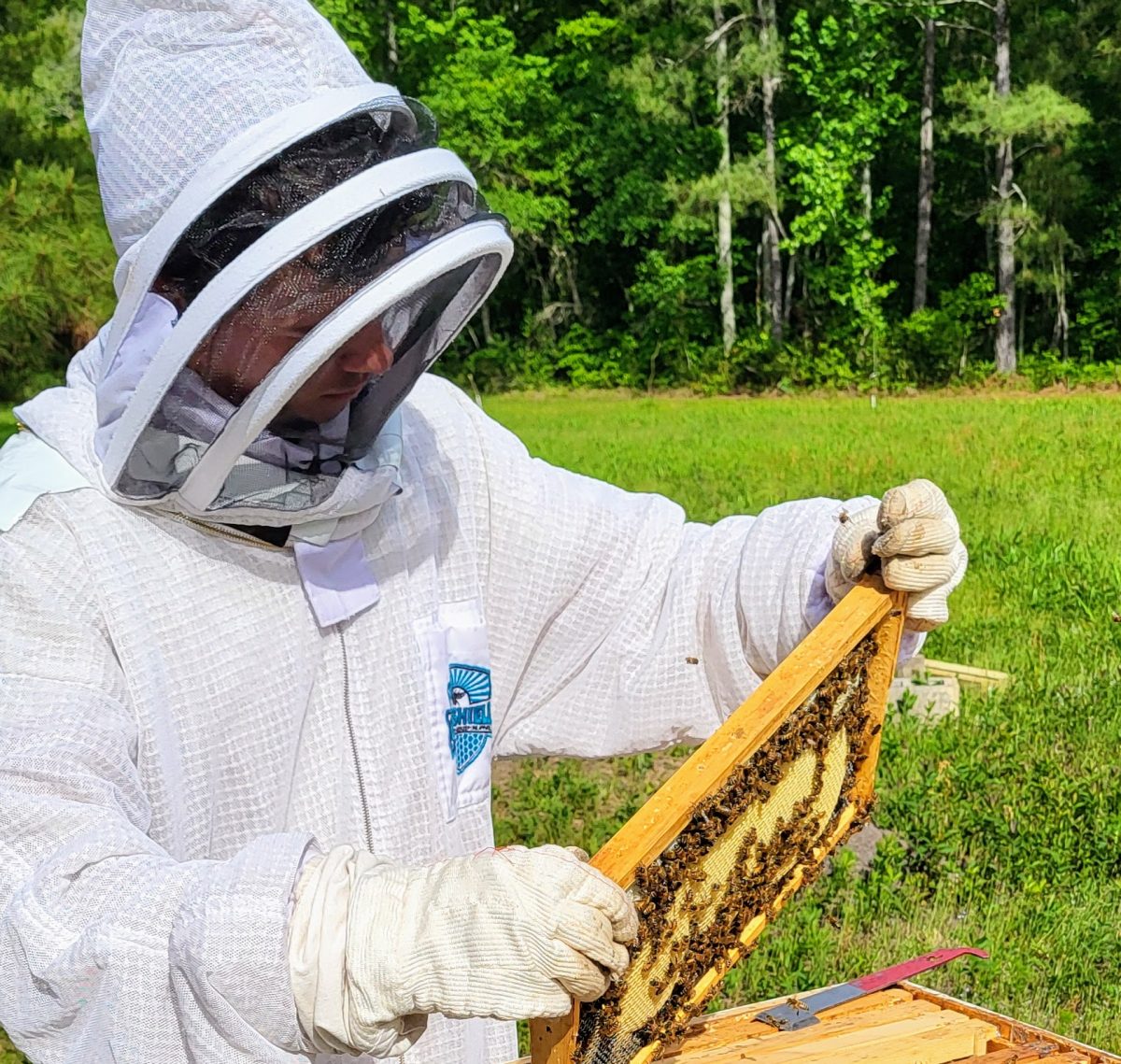
On the first day of class, Robert Jenkot asked his students to raise their hand if they or someone they know has ever used drugs, and almost every hand went up.
As a sociology professor at Coastal Carolina University (CCU), Jenkot teaches the Sociology of Drugs and Drug Control to upper-level students.
Jenkot teaches his students what drugs truly are and how they are made by analyzing drug compositions. Drugs are complicated, and they affect people in complicated ways. He believes students need to realize the full scope of these issues before they can dissect the surrounding law systems.
Jenkot stressed the importance of recognizing there is often a disconnect between the law and the application of the law, as much of the enforcement is left up to police discretion.
For example, if someone gets pulled over with a joint on their dashboard, the officer can choose to either throw the joint away and warn the driver not to do it again or press charges. The second option could lead to hefty fines and possible jail time.
“What the law is, and the application of the law, can be pretty screwy,” Jenkot said.
Understanding drug control policies, and the creation and enforcement of drug laws prepares sociology students for whatever path they find themselves on. Jenkot said he thinks drugs are prevalent in almost every career in the sociology field, not just drugs themselves but people that use drugs. A certain level of empathy must be present to separate the substance from the person.
With a background in the intersectionality of drugs, crime and gender, Jenkot has a unique perspective to offer. He began his drug research while pursuing his Ph.D., motivated by his interest in crime. His research efforts came at the perfect time: the rise of meth in the ’90s.
There was little research on meth at this time, especially from the criminal perspective. Even more niche, research on women cooking and using meth. Jenkot once sat in a Missouri jail interviewing a woman with a large gash on her hand, inflicted by an abusive meth-cooking husband, about her experience with using and cooking meth.
Women face risks in the world just for being women, but Jenkot said there are other dangers lurking for female criminals.
“When they’re women who cook meth, they’re doing the same job, producing the same drug, but they have to take precautions that guys don’t,” Jenkot said.
Sitting in the Missouri jail, Jenkot learned how this woman was ensnared and consumed by the perilous world of meth, both cooking and using. She was the only one home when the police raided their property, so she was arrested while her husband – the man who sucked her into the drug realm- remained free.
“I met her for about a month, and the only person she could call was him,” Jenkot said. “And he wouldn’t come bail her out, which is pretty hardcore.”























